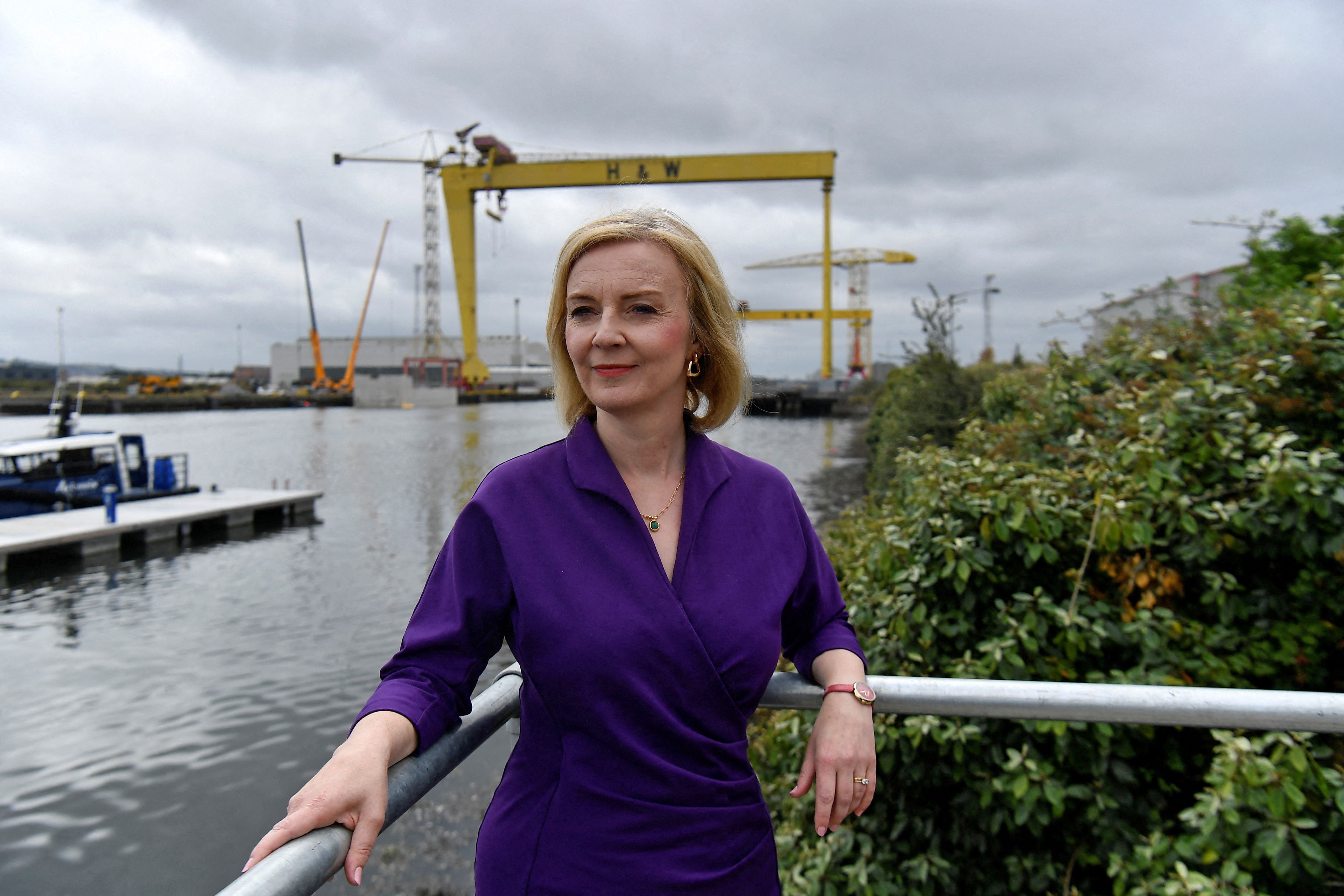
Business secretary and key Liz Truss ally Kwasi Kwarteng is “seriously considering” a £100bn plan for a crisis fund to keep energy bills under control, according to the head of Scottish Power.
Chief executive Keith Anderson said he had suggested that a state-backed fund could provide loans to energy firms so they can freeze prices for two years – with costs then repaid over the next 15 to 20 years.
Mr Anderson told BBC’s Good Morning Scotland that he had discussed the proposals with Mr Kwarteng last week, and he understood they were now being “seriously considered” by the government.
Calling for “bold” action during the cost of living crisis, he said: “I think we’ve got to a stage now where this is a national crisis, it’s of the scale of the pandemic, and we need national action.”
Kwarteng, who has backed the frontrunner in the Tory leadership contest, is reportedly in line for the role of chancellor if Ms Truss emerges as the winner on 5 September.
She has been criticised for refusing to commit to extra ”handouts” for hard-pressed families, choosing to prioritise tax cuts at an emergency “fiscal event” if she enters No 10. Both Ms Truss and rival Rishi Sunak have rejected Labour’s call for the energy price cap to be frozen over the next six months.
However, the Treasury is understood to be drawing up a series of options to help households, which will be presented to the incoming PM once Boris Johnson leaves on 5 September.
The Energy UK group last week urged the Tory government to embrace the idea of a “deficit tariff scheme” to help freeze the price cap for two years, allowing the pain to be spread over 10 to 15 years.
The trade association argued commercial banks could help with the state-backed fund and could allow customers to pay back the cost through a surcharge on bills, or through general taxation.
However, Energy UK – whose members include EDF Energy, Ovo and National Grid – acknowledged that it would take until at least early next year to set up the special fund.
The group wants the government to provide more “urgent” support needed this winter by extending the existing direct payment scheme announced by the then chancellor Mr Sunak back in May.
Scottish Power has estimated that the deficit fund plan to freeze the price cap for two years could cost £100bn because of soaring wholesale energy prices.
Sources close to the energy company told The Independent that Mr Kwarteng was receptive to the idea at last week’s meeting with Mr Anderson.
But sources close to the business secretary would not be drawn on his enthusiasm, telling The Independent that it would be up to the next PM to decide on whether to take the idea forward.
Scottish Power’s chief executive joined representatives from E.ON, Ovo Energy and charity leaders at a special summit chaired by first minister Nicola Sturgeon on Tuesday to discuss what can be done to mitigate the impact of soaring energy bills.
Asked beforehand what he hoped the meeting would bring, Mr Anderson said: “The first and most important thing is to protect customers, is to stop this price hitting customers’ bills.
The Scottish Power boss added: “And if we can all agree on that, that sends a very powerful message to the UK government.”
Following Tuesday’s meeting, Ms Sturgeon said there was a “consensus” among all those involved that “the UK government needs to intervene at a much larger scale given the nature and the scale of the crisis that is looming”.

However, the head of the Resolution Foundation think tank, Torsten Bell, dismissed the Scottish Power proposal – saying it was “needlessly complicated” and “more expensive than the government borrowing itself”.
Meanwhile, EDF’s boss warned that Britons face a “dramatic and catastrophic winter” ahead of October’s increase in the price cap on bills. Managing director Philippe Commaret said half of all UK households could be in fuel poverty in January.
Regulator Ofgem will announce the new level of the price cap on Friday, with energy industry consultants Cornwall Insight warning that households will face an 80 per cent rise in bills going into the winter period.
Energy prices are tipped by Cornwall Insight to hit £3,554 from October, then rise to £4,650 from January. And consultancy firm Auxilione estimated on Tuesday that gas and electricity bills could hit £6,552 for the average household from April.
“I think that all ideas in order to keep the bills for customers flat are really important and have all to be considered,” said Mr Commaret.
The EDF chief added: “There is not only one lever to be pulled but all levers have to be pulled right now because we face a catastrophic winter.”
It comes as a “wargame” designed to ensure the UK is prepared for a possible shortage of gas has been stepped up amid warnings of a potentially “catastrophic” winter.
The emergency planning exercise will be run over four days, rather than the usual two, according to the BBC.
Earlier this month The Independent revealed that gas power stations could be shut off to ration energy supplies as part of the drills to stave off widespread blackouts this winter.







